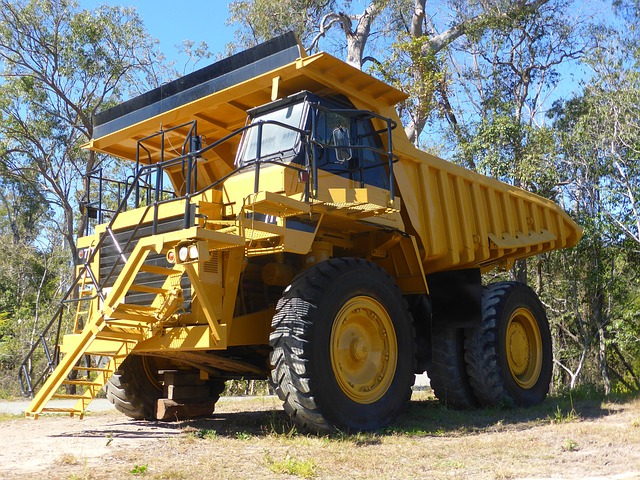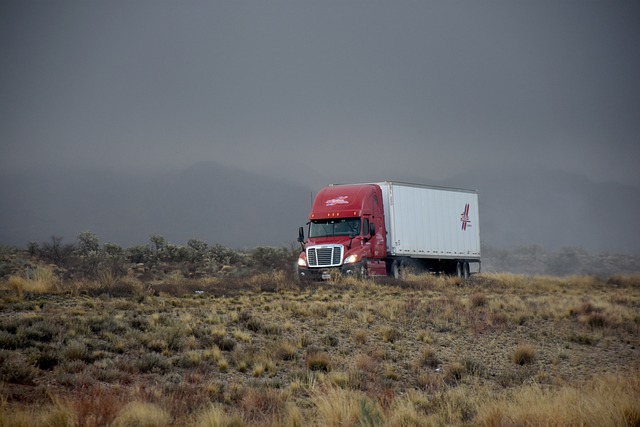Workers' Compensation (Workers Comp) is a critical safety measure for truckers and small fleet employees, offering comprehensive protection against work-related injuries. By ensuring proper medical care, wage support, and rehabilitation services, Workers Comp fosters employee well-being and financial compliance. Tailored, affordable policies cater to small fleets, attracting talent and maintaining a safe working environment. Navigating Workers Comp is complex but crucial for legal protection and access to benefits, making it a strategic asset for trucking businesses' long-term success.
In the dynamic world of trucking, where every day brings unique challenges, ensuring the well-being of your fleet employees is paramount. Understanding and implementing robust worker’s compensation (WC) coverage is not just a legal requirement but a strategic move for any trucking business owner. This comprehensive guide explores why WC is crucial for fleet employees, delving into the benefits of extensive coverage, providing navigation tips through the complexities of trucking WC, and offering affordable insurance solutions for small fleets, ultimately safeguarding your business from potential risks and fostering a culture of employee injury protection and compliance.
Why Workers' Comp is Crucial for Fleet Employees

Workers’ Comp is a vital safety net for fleet employees, offering comprehensive coverage for work-related injuries and illnesses. In the dynamic world of trucking and small fleets, where drivers are on the road for extended periods, the risk of accidents and workplace hazards is ever-present. Workers’ compensation insurance provides essential protection by ensuring that injured workers receive medical care, wage replacement, and rehabilitation services without having to navigate complex legal processes. This not only supports the physical and mental well-being of employees but also fosters a culture of safety and responsibility within the organization.
For trucking businesses and fleet operators, maintaining compliance with workers’ comp regulations is crucial. It protects the company from potential legal liabilities and ensures that employees have access to the benefits they deserve during difficult times. Moreover, affordable workers’ comp policies cater to small fleets, enabling them to offer competitive compensation packages without straining their financial resources. This insurance is not just a legal requirement but also a strategic move to attract and retain talent in this demanding industry, ensuring a motivated workforce that contributes to the overall success of the trucking business.
Benefits of Comprehensive Fleet Employee Coverage

Comprehensive fleet employee coverage is indispensable for any trucking or small fleet business. It offers a robust safety net for workers comp fleet employees, ensuring that in the event of an injury or illness related to work, they receive necessary medical care and financial support. This protection goes beyond meeting legal requirements for workers comp compliance; it demonstrates a commitment to employee well-being and fosters a safer working environment.
For small fleet employee insurance needs, affordable workers comp policies are readily available. These tailored plans provide comprehensive coverage, including employee injury protection, that can safeguard trucking business operations from potential liabilities. By prioritizing fleet employee coverage, businesses can maintain smooth operations, enhance morale among drivers, and ensure long-term success in a competitive industry.
Navigating Trucking Workers Compensation: A Guide

Navigating Trucking Workers Compensation can be a complex task for fleet owners and managers. With the unique challenges that come with managing a fleet, ensuring adequate fleet employee coverage is paramount. Trucking workers compensation policies are designed to protect both employees and employers in the event of on-the-job injuries or illnesses. These policies provide essential employee injury protection, covering medical expenses, lost wages, and other associated costs.
For small fleet employee insurance providers, offering affordable workers comp policies tailored to the specific needs of trucking businesses is crucial for maintaining compliance with regulations. By understanding the nuances of trucking workers compensation, fleet operators can safeguard their operations, demonstrate workers comp compliance, and foster a safer working environment for their drivers.
Ensuring Compliance and Protecting Your Small Fleet with Affordable Insurance Policies

For small fleet operators, navigating the complexities of workers’ compensation (WC) can seem daunting, but it’s a necessary step to ensure both legal compliance and the well-being of your employees. With the right approach, you can protect your trucking business and its workforce from unexpected risks and financial burdens associated with on-the-job injuries or illnesses. One effective strategy is to focus on obtaining affordable workers’ comp policies tailored to fleet employee coverage.
These insurance policies are designed to provide comprehensive protection, including medical expenses, lost wages, and rehabilitation services for injured workers. By prioritizing compliance with WC regulations, you safeguard your business from potential legal repercussions and fines. Moreover, offering trucking workers compensation ensures that your employees receive the necessary support during difficult times, fostering a positive work environment and promoting a culture of safety within your small fleet.
Understanding the significance of workers’ comp for fleet employees is essential to safeguarding your business and people. By providing comprehensive fleet employee coverage, you ensure that your drivers and staff receive the necessary protection in case of injuries or accidents while on the job. Navigating trucking workers compensation might seem complex, but with affordable policies tailored to small fleets, compliance becomes achievable. Protecting your employees and adhering to workers’ comp regulations are key steps towards fostering a safe and thriving trucking business environment.
